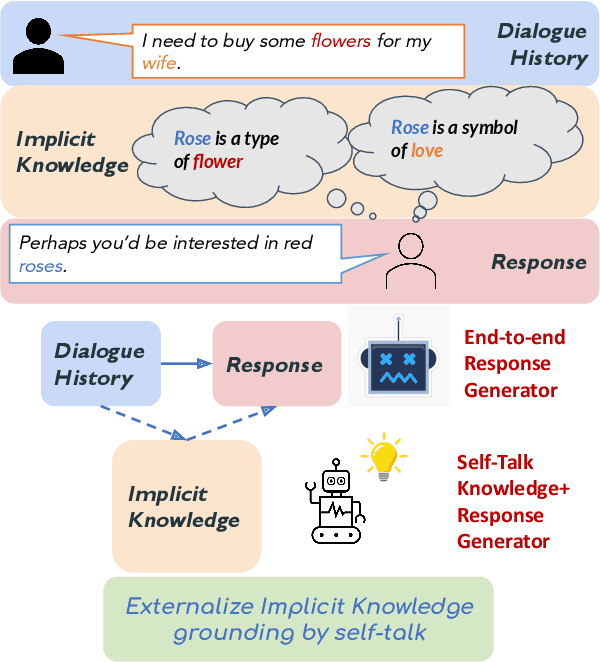Think Before You Speak: Using Self-talk to Generate Implicit Commonsense Knowledge for Response Generation
Paper and Code
Oct 16, 2021



Implicit knowledge, such as common sense, is key to fluid human conversations. Current neural response generation (RG) models are trained end-to-end, omitting unstated implicit knowledge. In this paper, we present a self-talk approach that first generates the implicit commonsense knowledge and then generates response by referencing the externalized knowledge, all using one generative model. We analyze different choices to collect knowledge-aligned dialogues, represent implicit knowledge, and elicit knowledge and responses. We introduce three evaluation aspects: knowledge quality, knowledge-response connection, and response quality and perform extensive human evaluations. Our experimental results show that compared with end-to-end RG models, self-talk models that externalize the knowledge grounding process by explicitly generating implicit knowledge also produce responses that are more informative, specific, and follow common sense. We also find via human evaluation that self-talk models generate high-quality knowledge around 75% of the time. We hope that our findings encourage further work on different approaches to modeling implicit commonsense knowledge and training knowledgeable RG models.
 Add to Chrome
Add to Chrome Add to Firefox
Add to Firefox Add to Edge
Add to Edge